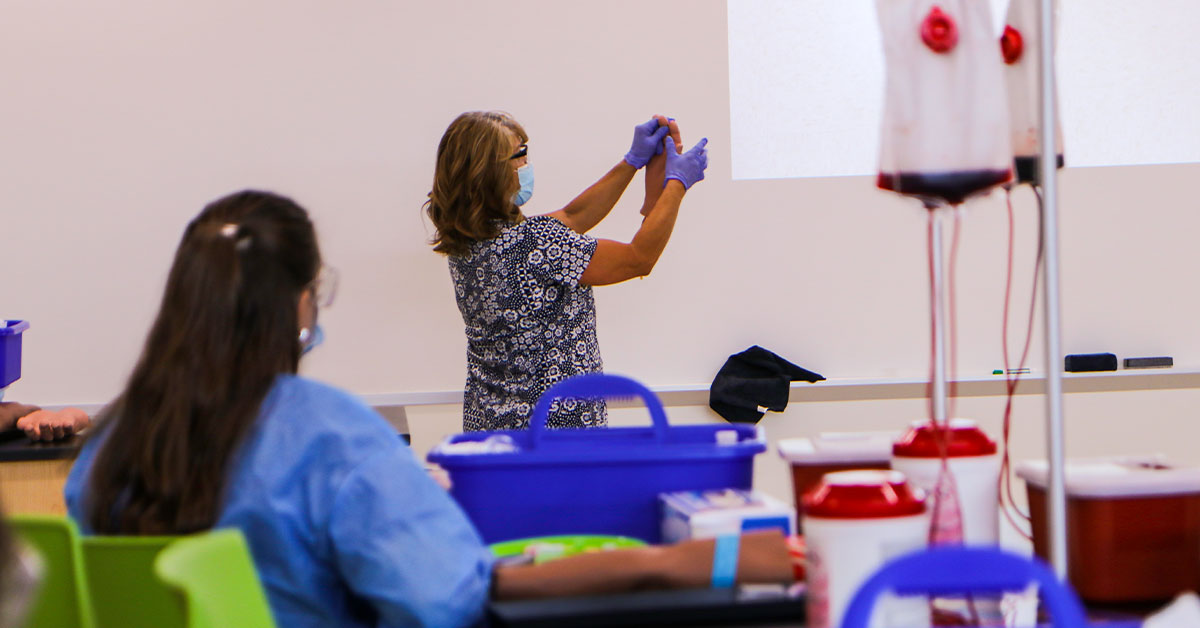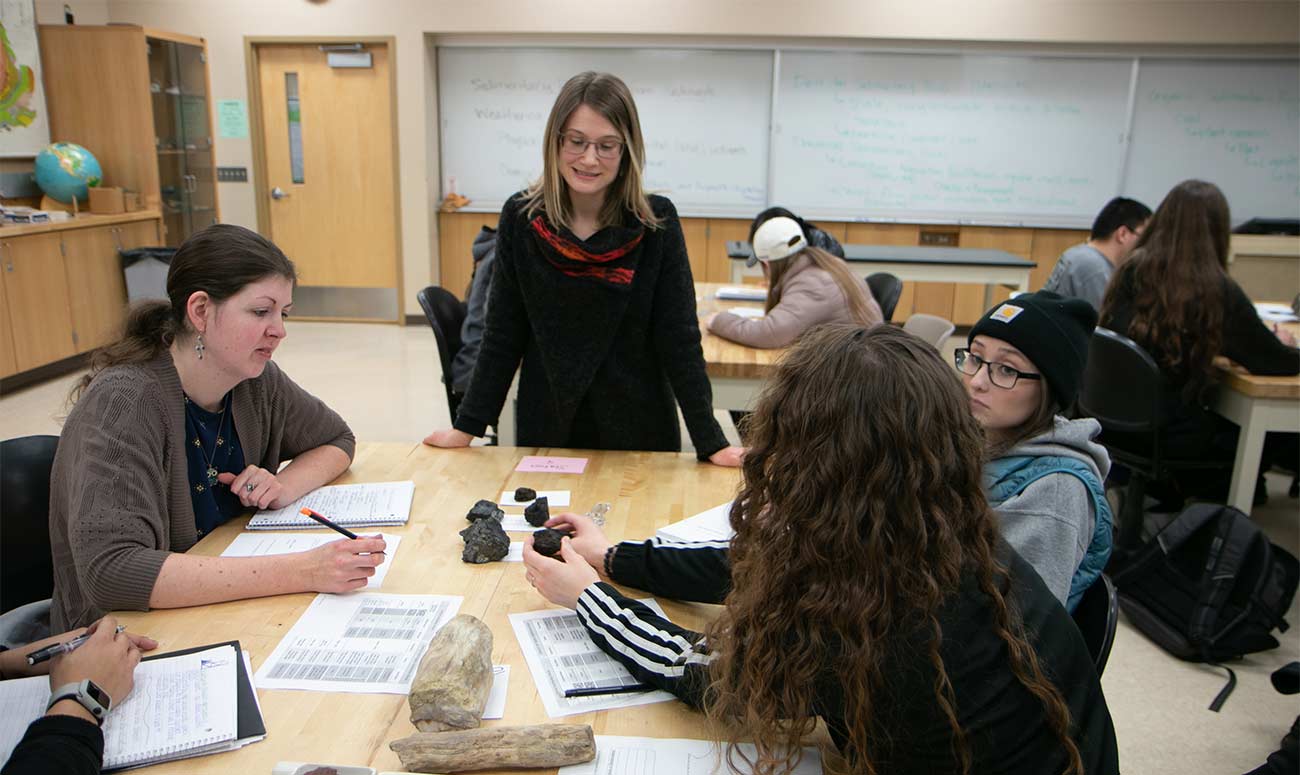Commitment to excellence in teaching shines through in student evaluations of YVC faculty
Life has thrown a lot at Yakima Valley College students and faculty over the past two years. Yet, through all the challenges brought on by shifting classes online and personal impacts of the COVID pandemic, YVC students continue to give their instructors high marks.
From encouraging student participation in class to making coursework relevant, the college’s faculty received strong positive feedback in evaluations completed by more than 4,300 students from spring 2020 through fall 2021.
Overall, YVC instructors received an average rating of 4.6 on a 5-point scale. And 89% or more of students said their instructors did the following all or most of the time:
- Challenged them to think more deeply about the content of the course (94%)
- Found ways to help students connect what they are learning to other experiences (89%)
- Created an environment in which students were encouraged to participate in class (94%)
- Treated them with respect (99%)
“Faculty have put extraordinary amount of time into meeting the needs of students during the pandemic,” said Sheila Delquadri, associate dean of institutional effectiveness. “The survey results show that students are benefitting from the care and consideration that faculty use to approach their instruction.”
“Our students are busy, many are taking care of family members and working and they have to balance that with their studies. That’s why our faculty are so committed to making their classes relevant and engaging for students — it plays such a huge role in their academic success and taking that next step forward.”
– Jennifer Ernst, Vice President for Instruction and Student Services.
The data also suggest, Delquadri said, that an emphasis in YVC’s new strategic plan regarding excellence in teaching and learning and professional development efforts such ESCALA (an effort focused on teaching at Hispanic Service Institutions) and TILT (Transparency in Teaching and Learning) have been effective.
David McReynolds, a communication studies instructor, noted that his students often provide insights that he can use to improve his classes. He recalls one student who suggested asking interesting questions and pointed to a media personality in the news industry who asked interesting interview questions.
“I took the advice and worked on taking abstract questions and making them more concrete, specific, relatable and directed specifically at students in the class,” McReynolds said. “The student’s challenge worked. How could I tell? More student engagement, more hands raised, more students eager to jump into the conversation.”

Allied Health Instructor Lisa Dominguez said that she’s used data from student evaluations to focus on providing additional guidance and explanation of assignments, as well as online course navigation, as part of her tenure goals.
“There are many different types of learners and some desire more teacher to student and student to student interactions,” Dominguez said. “When I reflected on my online courses, I saw that I could provide more of those types of learning experiences.”
In other responses on the fall evaluation, 89% or more of students strongly agreed or agree with the following statements:
- Instructors used a variety of course materials to engage students and encourage them to interact (92%)
- Instructors provided resources and advice to help students be successful in the class (89%)
- It was easy to navigate the course and could move around from one place to another within the course and find what they needed (93%)
High quality instruction that keeps students engaged in class is particularly important given the stresses faced by students outside the classroom.
As part of the fall evaluation, students also were asked whether a variety of factors caused difficulties for their education during the quarter. Family obligations were cited by 66% of students and work was noted by 50%. Also mentioned by students were finances (32%), health (29%), housing (9%) and transportation (5%).
“Our students are busy, many are taking care of family members and working and they have to balance that with their studies,” said Jennifer Ernst, vice president for instruction and student services. “That’s why our faculty are so committed to making their classes relevant and engaging for students — it plays such a huge role in their academic success and taking that next step forward.”
